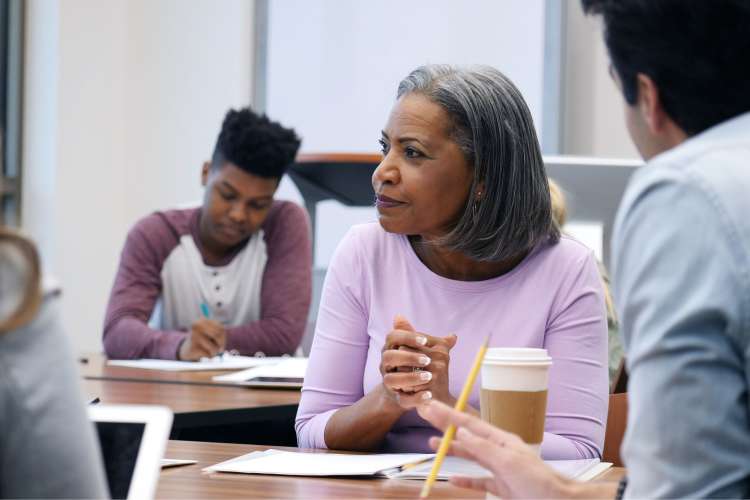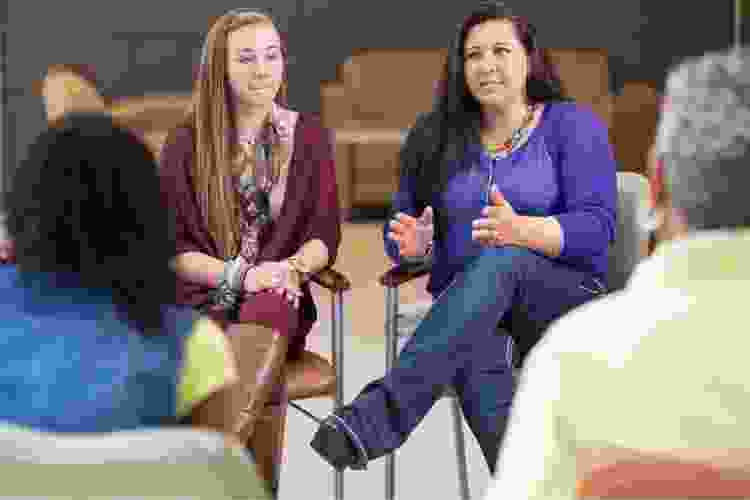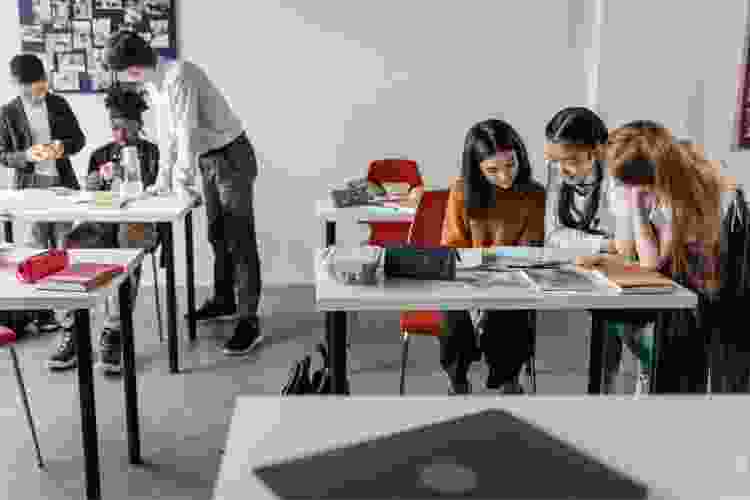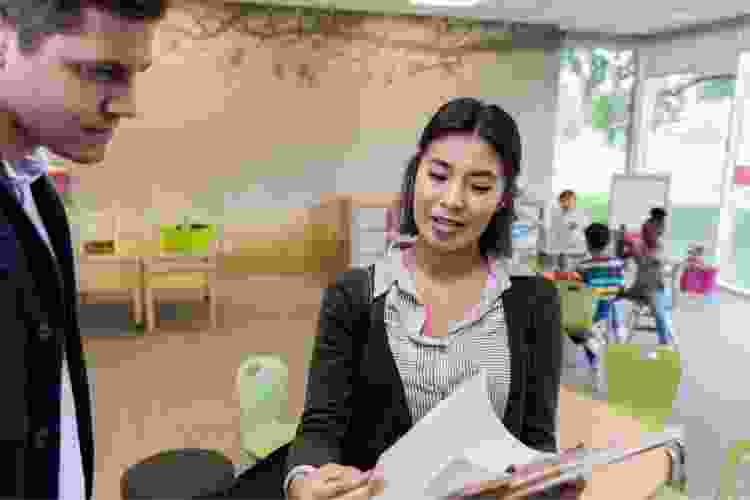36 Parent Teacher Conference Tips for 2026 That Actually Help

A parent teacher conference can seem intimidating, even if your child is a good student. After all, kids spend half their waking hours at school, so teachers get to know them well as the year progresses (a fact that makes some parents beam with pride and terrifies others). If you’ve got a meeting coming up, you might be wondering what to say — or how to get the most out of it.
This guide is here to help you walk in feeling confident and prepared. From what to ask to how to share your concerns, you’ll have a clear sense of what matters most and how to make the conversation count. Whether things are going smoothly or there’s something to work on, this parent teacher conference template sets the tone for real progress.
Jump to Section
- What Is a Parent Teacher Conference?
- Why Parent Teacher Conferences Still Matter
- Before the Meeting: What to Prepare
- Parent Teacher Conference Questions That Matter
- Parent Teacher Conference Tips for Parents
- Talking Points for Different Age Groups
- What Teachers Wish Parents Would Ask
- After the Meeting: What to Do Next
- Parent Teacher Conferences FAQs
What Is a Parent Teacher Conference?
A parent teacher conference usually happens once or twice a year and gives parents a chance to hear how their child is doing at school. The focus is typically on academics, but behavior and social skills often come up too. According to the California State PTA, these meetings help build a stronger connection between families and teachers, giving everyone a clearer picture of how the child is progressing and how to support them together.
Why Parent Teacher Conferences Still Matter
Having a parent teacher conference (at least in person; some schools have switched to video or phone conferences) isn’t as common as it once was, but the meetings are still crucial for ensuring students’ success.
1. They Get Everyone on the Same Page

Parent teacher meetings create space for honest conversation about how a student is doing, what’s going well and where they might need extra support.
2. They Help Catch Problems Early
If a student is struggling, it’s better to know sooner rather than later. Conferences allow for early intervention, which is key to preventing students from falling even further behind.
3. They Give Parents a Chance to Speak Up
These meetings aren’t just for updates. They’re also a time for parents to advocate for their child’s needs and talk through ideas that might help and develop a plan of action if additional support, such as extra time for test-taking.
4. They Help Teachers Understand the Whole Kid

Hearing about a student’s personality or learning style gives teachers more to work with than what they see in class. That context can make a big difference and help identify how they learn best.
5. They Offer Tips You Can Use at Home
Teachers can share what your child needs help with and how to support them, whether it’s homework routines or small changes that make things smoother.
6. They Build a Stronger Connection Between Home and School
When families and teachers work together, kids benefit. A quick meeting helps keep that connection strong.
Before the Meeting: What to Prepare
A little planning goes a long way in helping you walk into a parent teacher conference feeling confident and prepared. Start by checking in on how your child is doing, especially in subjects where they might need extra support. Knowing where things stand gives you a solid foundation for the conversation and helps you focus on the areas that matter most.
7. Check in on Recent Work

Take a look at any graded assignments, quizzes, tests or homework from the last few weeks. This can help you spot patterns, like slipping grades or ongoing struggles with a particular subject.
8. Review Progress Reports or Report Cards
If these are available before the meeting, use them to get a big-picture view of how your child is tracking across subjects.
9. Make a Short List of Talking Points
Jot down any questions, concerns or observations you want to bring up. Having a few notes on hand can help keep the conversation productive and on track.
10. Ask Your Child for Input

See if there’s anything they want you to mention — maybe a subject they’re finding hard, a classroom issue or a question they’re too shy to ask themselves. This makes sure their voice is part of the conversation, too.
Parent Teacher Conference Questions That Matter
Coming to the meeting with a few thoughtful questions can help you get the most out of your time with the teacher.
11. Is My Child’s Academic Performance Where It Should Be for Their Grade Level?

This gives you a clear picture of how your child is doing compared to expectations and helps guide the rest of the conversation. It’s best to ask this first because it’s the main purpose of the parent teacher conference and sets the tone for the rest of the meeting.
12. What Support Is Available if They’re Falling Behind?
If the teacher raises concerns, ask about resources like extra help sessions, tutoring or whether an individualized education plans or 504 education plans might help.
13. Are There Ways To Challenge My Child if They’re Ahead?
If your child is doing well, find out if there are enrichment options like advanced assignments, clubs or additional reading.
14. How Does My Child Interact With Their Classmates?

Social skills are just as important as academics. This question can give insight into how your child is doing in group settings like lunch, recess or collaborative projects.
15. Can My Child Focus During Class and Stay on Task?
Attention issues often show up in school before anywhere else. Are they able to focus during instruction, independent working time and group projects? Knowing how your child handles different classroom scenarios helps spot potential obstacles.
16. What Do You See as Their Biggest Strengths?
This helps you understand what’s going well and how to build on it — whether it’s academics, creativity or leadership.
17. Are There Any Areas Where They Could Use Improvement?

This question opens the door for honest feedback and gives you and the teacher a shared goal to work toward.
Parent Teacher Conference Tips for Parents
When it comes to parent teacher conference tips for parents, the biggest one is to know exactly what you want to say in the meeting. These meetings can move fast since teachers are often on a tight schedule, so a little prep can go a long way in making your time count.
18. Come in With a Focus

Know the key points you want to cover. If you have specific concerns or questions, jot them down ahead of time. You’ll only have a few minutes and time flies once the conversation gets going.
19. Take Notes
Bring something to take notes in, whether it’s a laptop, your phone or just a pen and paper. You’ll want to remember key takeaways, especially if a follow-up is needed later.
20. Ask To See Their Work
It’s also a good idea to ask to see examples of your child’s homework, quizzes or projects, to get a better idea of how they’re doing.
21. Get the Teacher’s Contact Info

Make sure you know how to reach the teacher in case questions come up after the meeting. Email is usually easiest, but some teachers use apps or school portals to communicate.
22. Share What You Know
If you have time, it’s helpful to share information about your child, such as their personality traits, likes and dislikes and even fun facts like their favorite color, so your teacher can get to know them better.
Talking Points for Different Age Groups
What you cover in a parent teacher conference depends a lot on your child’s age and grade.
23. Kindergarten to Grade 2

For early elementary (Kindergarten through second grade), it’s less about academic progress and more about classroom behavior, attention span and classroom dynamics. Ask how your child is adjusting, following directions and interacting with peers.
You might also hear about upcoming classroom plans or events, such as school fundraising ideas or holiday parties that parents can support.
24. Grades 3 to 5
A parent teacher conference for older elementary students should cover basic skills such as reading comprehension and address any areas for improvement. Reading comprehension, basic math skills and classroom participation all come into play.
If your child is falling behind or excelling, the teacher may share examples of their work and talk about strategies to keep them engaged.
25. Middle School
Middle school is a big transition, so your conversation may go beyond grades. Middle school is such a pivotal (and, at times, tumultuous) time in a child’s life. It’s a good opportunity to check in on how your child is doing socially and emotionally, especially if you’ve noticed any signs of stress or withdrawal at home.
Academically, you’ll want to review performance across all subjects and gauge their progress across all subject areas. It’s never too early to think about the future, so a parent teacher conference is a perfect opportunity to discuss future goals and even career aspirations.
26. High School

In high school, a parent teacher conference is heavily geared towards college and career planning. It’s a time to discuss standardized test scores, SAT prep and AP courses that support the student’s goals.
Teachers can also help identify any red flags, whether academic or emotional and connect you with school counselors or resources if needed.
What Teachers Wish Parents Would Ask
A parent teacher conference is about more than just grades, but many parents zero in on academic performance alone. Teachers often wish the conversation included questions that give a fuller picture, like how a child behaves in class, connects with others or responds to different teaching styles.
Asking the right questions can help you understand what’s working, what needs support and how to help at home.
27. How Does My Child Interact With Classmates?

Social development is just as important as academic growth.
28. What Are My Child’s Strengths in the Classroom?
This gives you insight into where they thrive and feel most confident.
29. Does My Child Struggle With Focus or Staying on Task?
Attention challenges are easier to manage when caught early.
30. Have You Noticed Any Patterns in How My Child Learns Best?

Understanding whether they respond well to visuals, hands-on activities or verbal instructions can help at home, too.
31. Is There Anything We Can Reinforce or Work on Together at Home?
Collaboration makes a big difference and teachers appreciate the follow-through.
After the Meeting: What to Do Next
The real work often begins after the parent teacher conference ends. Keeping the momentum going ensures that the conversation leads to meaningful outcomes.
32. Review Your Notes

Compare what you wrote down with your original list of parent-teacher conference questions. If anything was missed or still feels unclear, reach out to the teacher while the conversation is still fresh.
33. Follow Through on Next Steps
If you agreed on any intervention plans or classroom strategies, make sure you understand your role. That might mean supporting homework routines, setting up a quiet study area or practicing specific skills at home.
34. Schedule a Follow-up if Needed
If something felt off or you disagreed with part of the discussion, it’s OK to ask for a follow-up — whether with the same teacher or someone else, like a counselor or administrator.
35. Keep Checking In

Even if things seem fine, stay in touch. Periodic check-ins help you catch small issues before they turn into bigger ones.
36. Talk to Your Child
Go over the highlights of the parent teacher conference with your child. Ask how they feel about the feedback and listen carefully. If there’s a gap between what the teacher said and what your child shares, that’s worth following up on.
Parent Teacher Conferences FAQs
What Is the Purpose of a Parent-Teacher Conference?

It’s a common misconception that a parent teacher conference is just about test scores and report cards, but it has the potential to be so much more. It’s a chance for parents and teachers to put their heads together and figure out the best way to support a child academically, socially and emotionally.
In some cases, this might mean looking into specialized programs or extra support for challenges a student is facing at school. Essentially, a parent teacher conference helps both sides work toward a shared goal: helping the child succeed and feel confident doing it.
What Should I Say in a Parent-Teacher Conference?
There’s no script, but there are a few smart ways to approach the conversation at your next parent teacher conference. Start by bringing up any concerns about your child’s academics, behavior or social skills. Time is limited, so it’s best to focus on what matters most first. Once you’ve shared your perspective and heard the teacher’s, ask if there are any additional challenges or strengths you might have missed. A teacher may see things in the classroom that don’t show up at home and vice versa.
If you’re looking for specific parent teacher conference examples, ask for advice on the best ways to support learning at home. Maybe there’s a memorization technique that works well for your child or a tool the teacher recommends to help with focus. Don’t be afraid to ask what your child is doing well, either. This meeting isn’t just about finding problems — it’s also a chance to celebrate progress.
Do Schools Still Have Parent Teacher Conferences?
Yes, although they don’t always look the same. Many schools have moved to virtual meetings using video calls or phone check-ins, which can be more convenient for working parents or families with tight schedules. The format might have changed, but the goal hasn’t. Parent teacher conferences remain one of the best ways to check in, build rapport and advocate for your child’s success.
A little preparation goes a long way. With the right questions, a collaborative mindset and a few thoughtful notes, you can leave your next parent teacher conference with real insight and a clear path forward.
For even more helpful parenting ideas, check out other experiences happening on Classpop!

